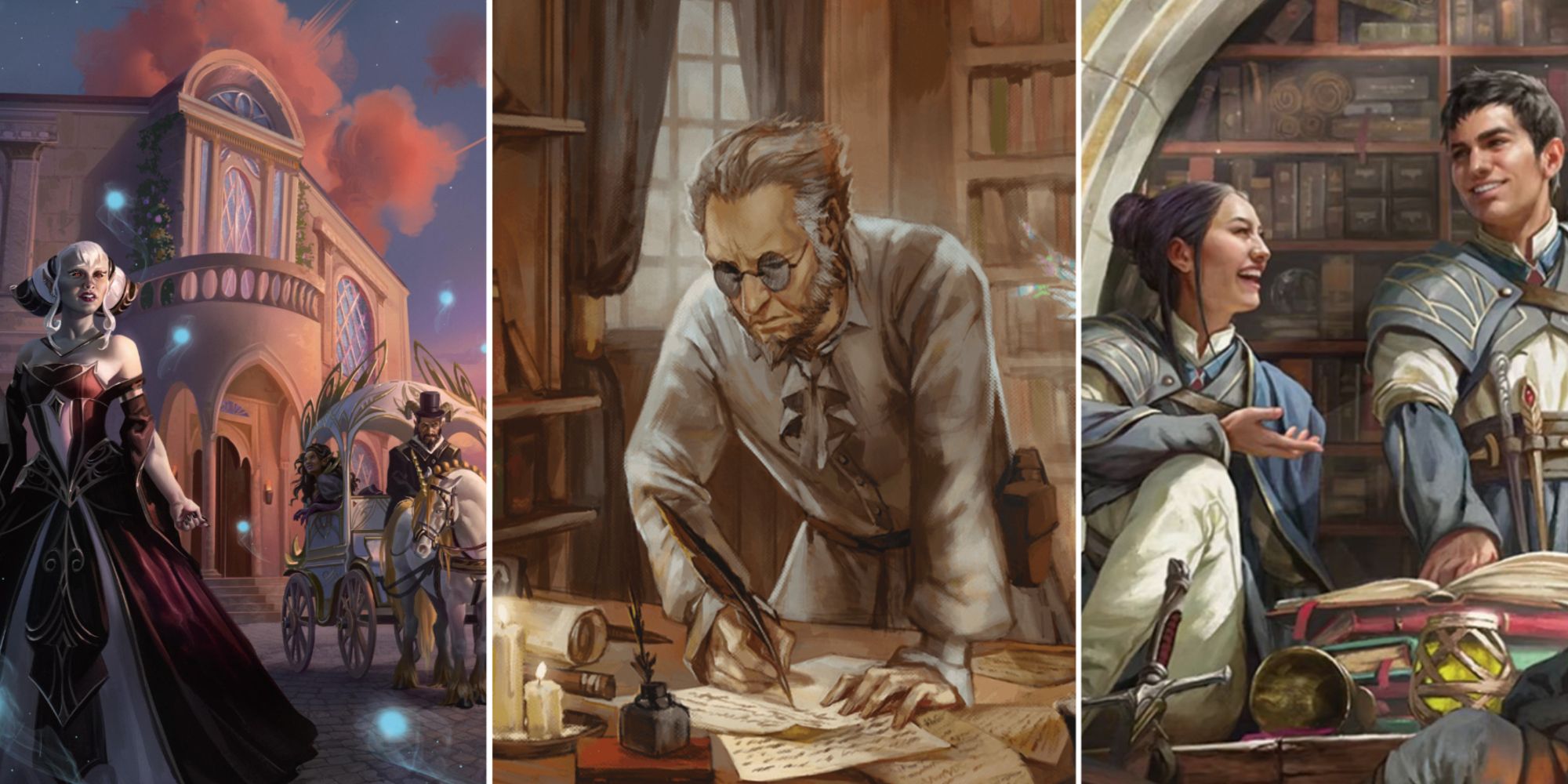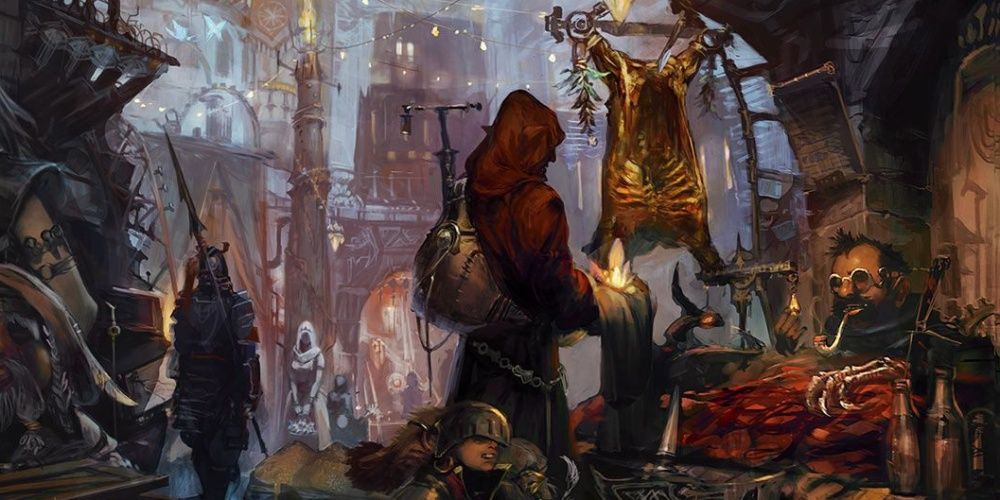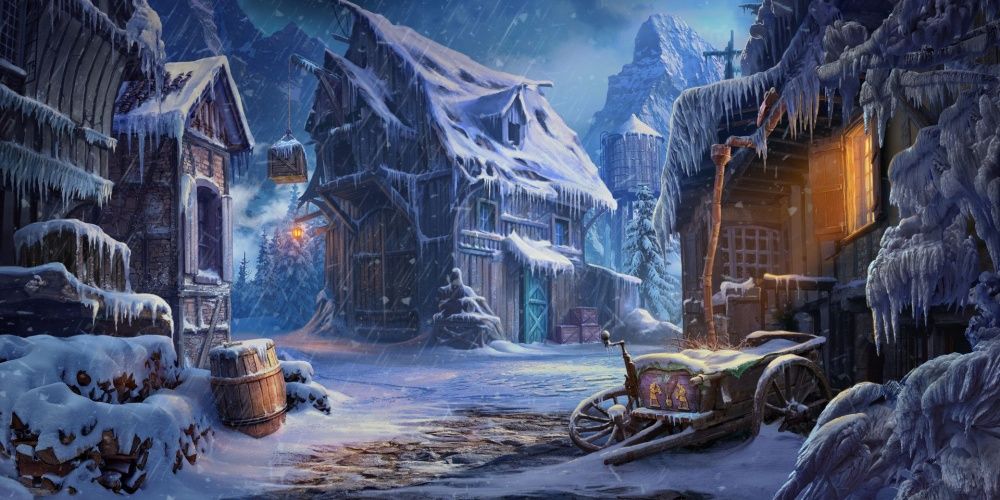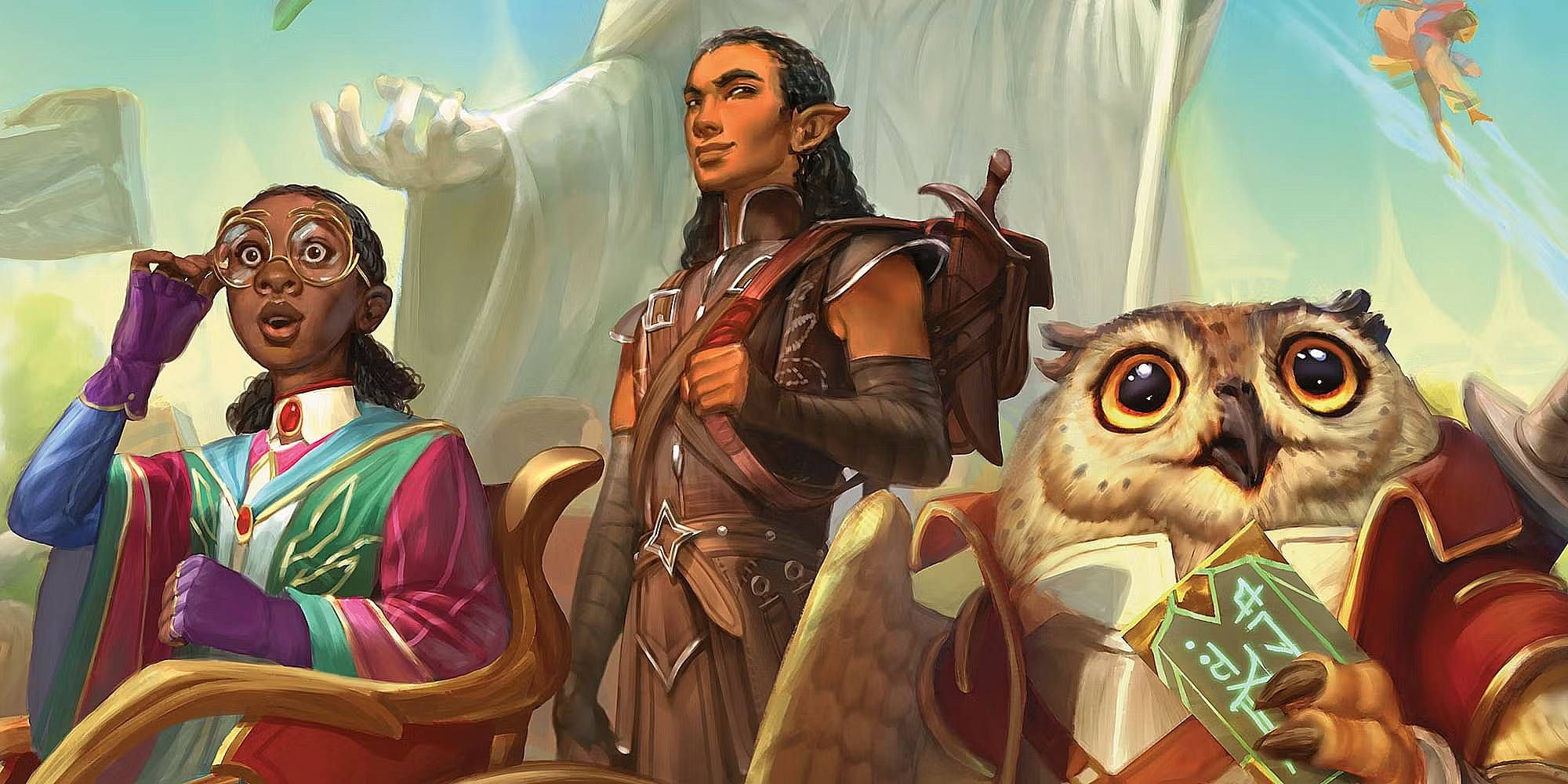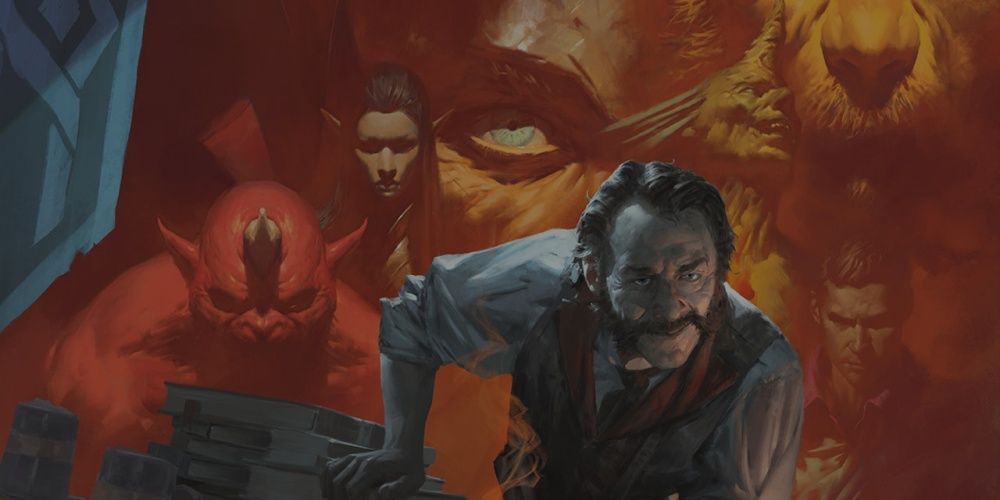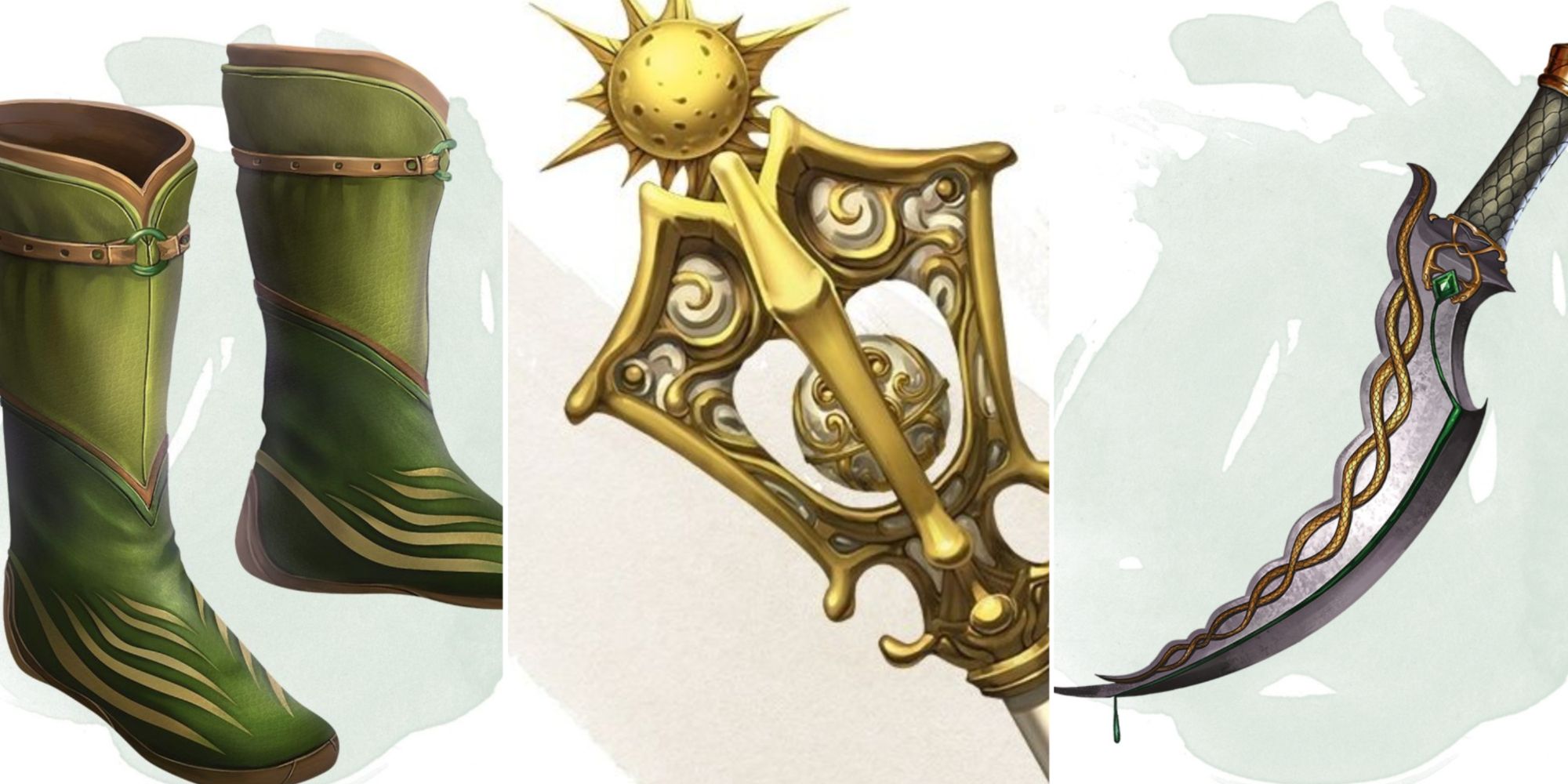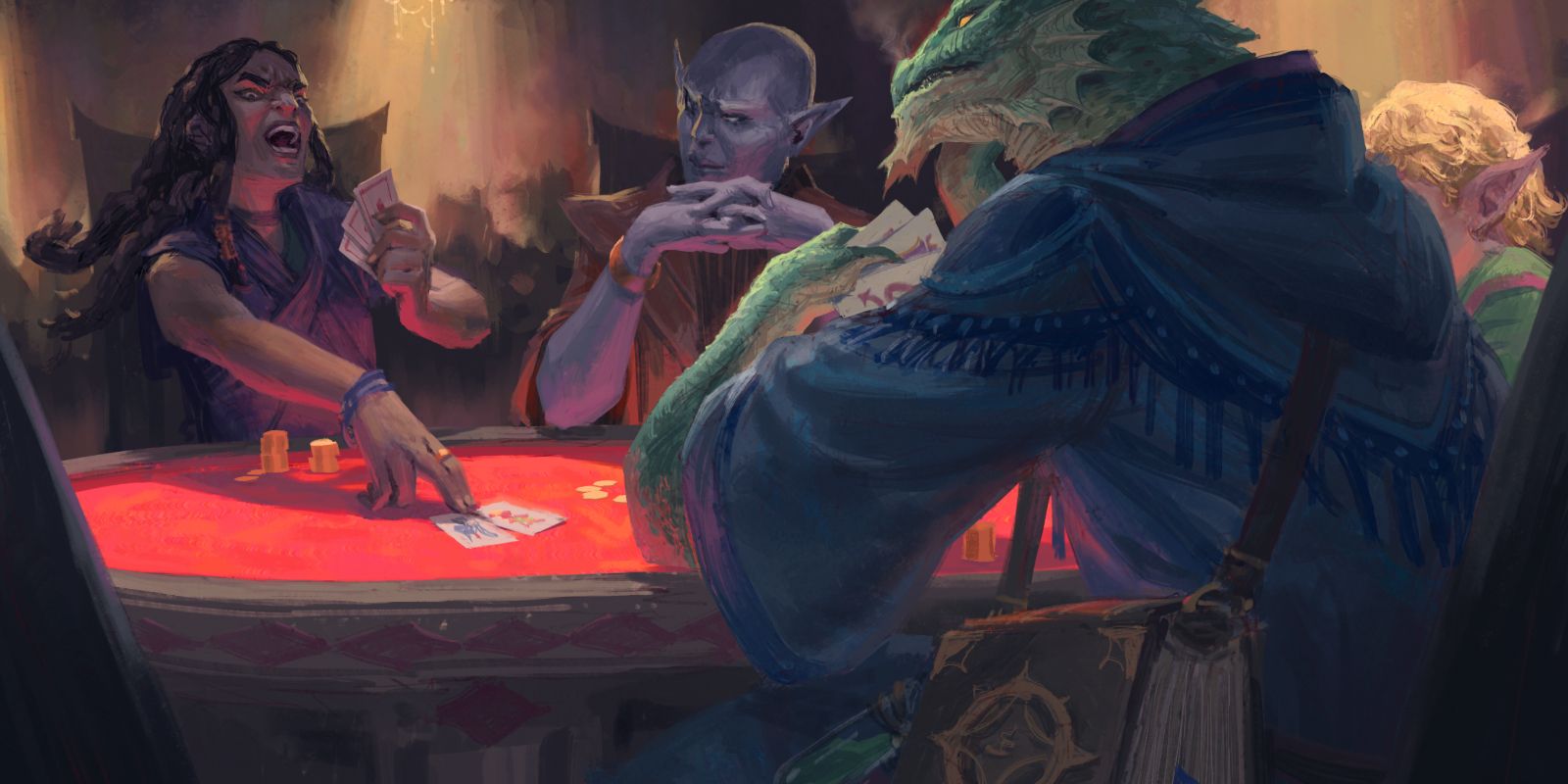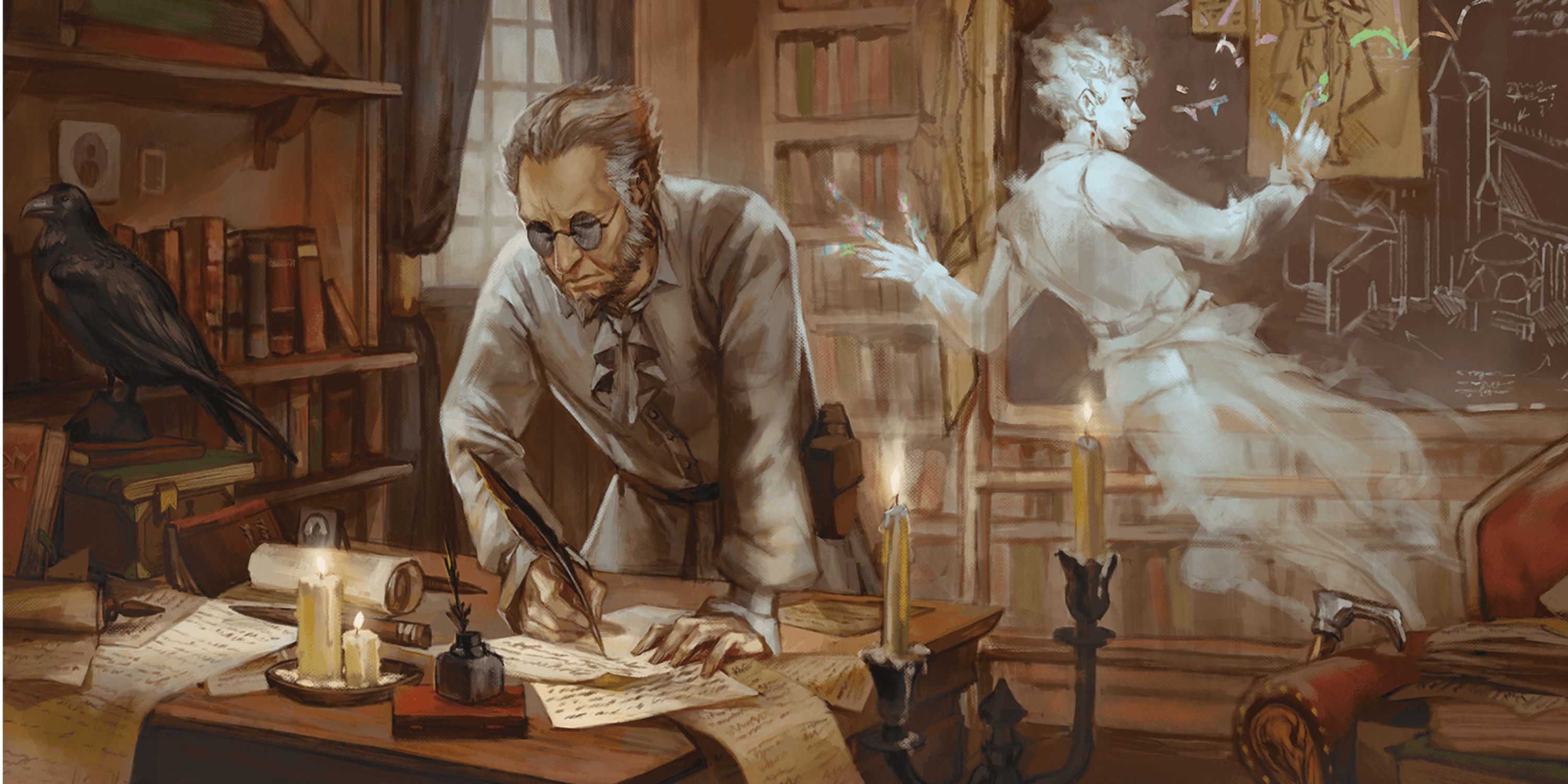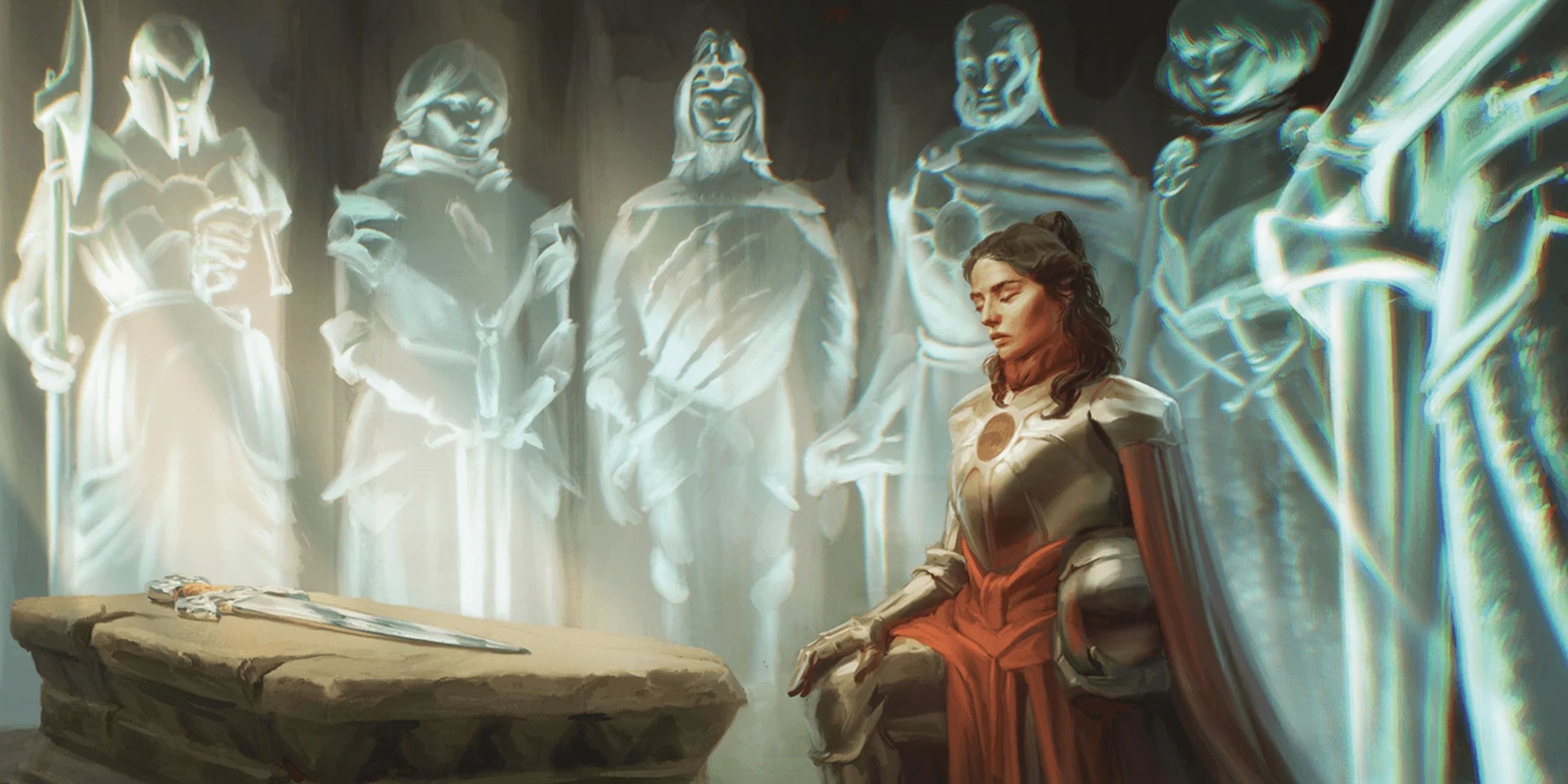Adventuring is the highlight of any adventurer's career. After all, it's in their title. But have you ever thought about what your character is up to when they're not braving abandoned crypts and slaying dastardly villains? Whether it be days, weeks, months, or years, the time between adventures is bound to occasionally pass in every Dungeons & Dragons game.
Your character should put that time to use. They are one of the most capable beings in your dungeon master's world. They wouldn't just waste it away drinking at a bar and sitting in silence. Or maybe they would? That's for you to decide. Having your character do something during downtime will enrich the fantasy world of your local tabletop, and might earn you some in-game rewards to boot.
Updated on March 27, 2023 by Jerel Levy: Whether it's things to do in town or things to do after an adventure, one of the best ways to enhance your character's experience and display character growth is to ensure they have an involved life. This, of course, means thinking of the aspects of what they'd do during their downtime. Whenever you're looking for things to do in D&D, you might forget that downtime activities can serve to strengthen skills, learn new abilities, or even develop your character through roleplay and experiences that may happen beyond the table.
10 Run A Business
Entrepreneurs rejoice! As well as anyone else who has a reason to buy someone's business or create their own. After your party buys, inherits or is rewarded with a business, the Dungeon Master's Guide features a d100 table on page 129 that will allow them to run it between adventures.
Beware a low roll, though, as a business might cost you as much as it could make you. Businesses are also more than a source of income. Maybe the players forge friendships with local townsfolk or earn the rivalry of another company in town.
9 Progress Their Backstory
When you spend hours writing a detailed backstory chock full of interesting characters, and the dungeon master never incorporates the smallest piece, it feels bad man. You may not be able to tell the dungeon master how to run his game, but you can show them your dedication to the backstory you created.
If your character's backstory is so important, they would be pursuing answers in their downtime. Move your own backstory along behind the scenes, and maybe your DM will see your persistence and include your backstory in an adventure. It's a great way to continue character development without having to impede on the entire table and to ensure all your hard thought-out backstory ideas get a chance to be played out without distracting from the main mission.
8 Meet NPCs
Non-player characters are probably the most common means by which the dungeon master delivers information to the players. If you want to learn more about the game world you're playing in, have your character spend downtime meeting the DM's cast of characters.
Your dungeon master will appreciate your interest in what they've been working on. Just as well you may be able to establish a good rapport with NPCs or learn something important about them that may be beneficial to the party as a whole. Good connections with NPCs are great to have in your back pocket.
7 Buy Items
We've all been in one of those games that turned into a shopping spree. When players are content to sit at a table and haggle over items with your merchants, you know you've got them invested. That being said, it's also not the most productive use of everyone's precious game time.
In order to avoid your Dungeons & Dragons night turning into a trip to the mall, have your character purchase items at some point during downtime. Do your research in your free time away from the table, and the game will become more exciting for everyone involved. You can also ask your DM to give you a sheet of available items at every store, detailing items and prices so that you can just choose what you want and purchase during your downtime and have more game time. Of course, leave some room for haggling just in case.
6 Craft Magic Items
Players LOVE magic items. The only issue is that they can prove quite difficult to come across. Instead of waiting to stumble upon the exact item you want, why not spend your downtime crafting the item? Whether you can craft magic items or not is up to your dungeon master's discretion. Even if they say yes, the process isn't exactly easy.
You'll need a formula for crafting the item, meet a minimum level equal to the item's rarity, and be a spellcaster that can cast any spell the item produces. On top of that, it's going to cost you a lot of time and gold. For reference, crafting an uncommon item will cost you 20 days and 500 gold pieces. That'll give you something to do every time you have some downtime, you'll never be bored again.
5 Sow Rumors
It's hard to depose a village's miscreant leader when the villagers are all convinced that he's a great person. In situations like these, a little rumor can go a very long way. Depending on the town's size, sowing rumors might take as little as a couple of days or as long as an entire month.
It will also cost you a minimum of one gold piece per day to cover the cost of appearances, drinks, and other rumor-sowing purchases. At the end of the time, your character makes a DC 15 deception check. On a success, you shift the community's viewpoint on the subject of your rumor towards more friendly or hostile grounds.
4 Carouse
If you consider adventuring to be your character's job, he or she might want to spend time between adventures kicking back. Attend some parties, get hammered drunk, gamble, or do anything else that keeps the terrors you face in the darkest of dungeons at bay. This time isn't simply handwaved away, though. The Dungeon Master's Guide features a d100 table of outcomes that might happen as a result of your fun.
Let's hope you strike it big at the gambling tables instead of drunkenly wandering into an alley full of thugs.
3 Build A Stronghold
A proper, well-established adventuring party needs a place to call home. If your characters enjoy one another's company enough, you might just decide to move in together. Building your stronghold is going to take a lot of time and money, but once it's done, your party will always have a safe place to return.
At least, until the dungeon master has an enemy sneak their way in. Before you begin building anything, you're going to need a plot of land. Once you've got that, the time and gold it will cost you to complete your stronghold vary widely based on how resplendent you want it to be. For example, a trading post will only cost you 5,000gp, while a palace is more along the lines of 500,000gp.
2 Research
Maybe your character stumbled across something in the last dungeon delve that piqued their interest. To find out more about this intriguing subject, you can spend your downtime in research.
Researching is one of the most dynamic downtime activities, as the requirements for your research are entirely up to you and the dungeon master. Regardless of their decision, it's a safe bet that there are going to be some ability checks involved. Good luck with finding the answers you seek.
1 Perform Sacred Rites
If your character is more interested in the realms above the skies than the ones below them, performing sacred rites is the perfect downtime activity. Layperson members of a religion make sacrifices, offer tithes, or perform volunteer work in the name of their god.
Meanwhile, priests such as clerics and paladins can hold ceremonies such as marriages, funerals, and masses. Becoming an active member of any community's religion is a surefire way to make the people there like you.
Beyond that, if you perform sacred rites for at least ten days, you gain an excellent benefit. At the start of each day for the next 2d6 days, you gain dungeon master inspiration. Again, this benefit might be subject to the dungeon master's discretion. But in this debate, you're on the side of rules as written (RAW) according to page 129 of the DMG. Suck on that fantasy god.

